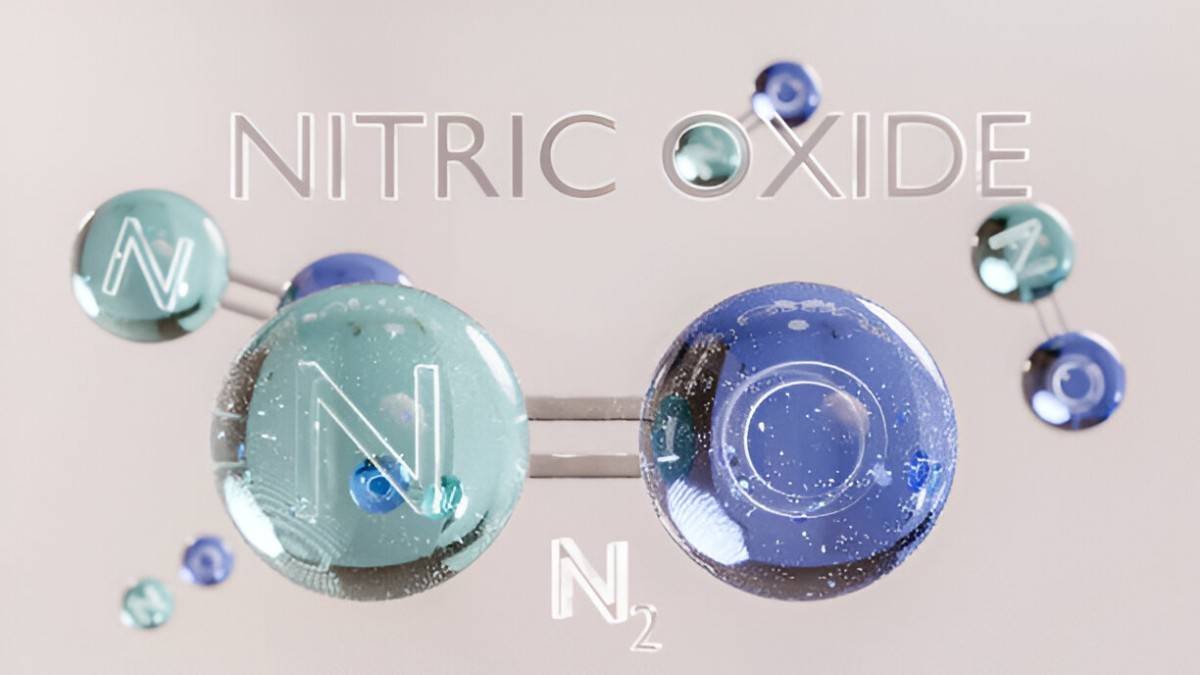Nitric oxide (NO) is a gas molecule produced naturally by the body that plays a crucial role in various physiological processes. It acts as a signaling molecule in the cardiovascular, nervous, and immune systems, regulating blood flow, neurotransmission, and immune response. In this article, we’ll explore the nutritional values, key health benefits, potential therapeutic uses, cautions, ways to incorporate nitric oxide into your diet, and other relevant information.
Summary Table
| Aspect | Details |
|---|---|
| Nutritional Values | Synthesized from arginine and nitrates in foods |
| Key Health Benefits | Cardiovascular health, exercise performance, cognitive function, immune function |
| Therapeutic Uses | Erectile dysfunction, hypertension |
| Cautions | Excessive supplementation, interactions with medications |
| Incorporating into Diet | Nitrate-rich foods (leafy greens, beets, celery, pomegranates), arginine-containing foods (meat, poultry, fish, dairy products, nuts, legumes) |
Nutritional Values
Nitric oxide is not a nutrient that can be obtained directly from foods. Instead, it is synthesized within the body from the amino acid arginine, which is found in protein-rich foods such as meat, poultry, fish, dairy products, nuts, and legumes. Additionally, nitrate-rich foods such as leafy green vegetables, beets, and certain fruits can indirectly support nitric oxide production by serving as precursors for nitric oxide synthesis.
Key Health Benefits
- Promotes Cardiovascular Health: Nitric oxide plays a central role in regulating blood vessel function and promoting vasodilation, the widening of blood vessels. By increasing blood flow and reducing blood pressure, nitric oxide helps improve cardiovascular health, lower the risk of hypertension, and reduce the risk of heart disease and stroke.
- Enhances Exercise Performance: Nitric oxide supplementation or nitrate-rich foods may help enhance exercise performance by increasing blood flow to muscles, improving oxygen delivery, and reducing oxygen consumption during physical activity. Nitric oxide also supports mitochondrial function and energy production, leading to improved endurance and exercise capacity.
- Supports Cognitive Function: Nitric oxide is involved in neurotransmission and synaptic plasticity, the ability of neurons to form new connections and adapt to changes in the brain. Adequate nitric oxide levels may support cognitive function, memory, and learning by promoting optimal brain circulation and neuronal communication.
- Boosts Immune Function: Nitric oxide plays a role in modulating immune responses and defending against pathogens such as bacteria, viruses, and parasites. It helps regulate inflammation, enhance immune cell function, and promote immune defense mechanisms, contributing to overall immune health and resilience.
Therapeutic Uses
In addition to its key health benefits, nitric oxide may offer therapeutic benefits for specific health conditions, including:
- Erectile Dysfunction: Nitric oxide plays a crucial role in erectile function by relaxing smooth muscle tissue in the penis, leading to increased blood flow and improved erectile response. Nitric oxide supplementation may help alleviate symptoms of erectile dysfunction in some individuals.
- Hypertension: Nitric oxide deficiency is associated with hypertension, or high blood pressure. Nitric oxide supplementation or nitrate-rich foods may help lower blood pressure by promoting vasodilation and improving blood vessel function, leading to better blood pressure control.
Cautions
- Excessive Supplementation: While nitric oxide supplementation may offer benefits for certain individuals, excessive supplementation or use of nitric oxide precursors such as arginine may have adverse effects, including gastrointestinal discomfort, low blood pressure, and electrolyte imbalances. It’s essential to follow recommended dosages and consult with a healthcare professional before starting nitric oxide supplementation.
- Interactions with Medications: Nitric oxide supplements may interact with certain medications, including blood pressure medications, erectile dysfunction drugs, and medications that affect blood clotting. If you are taking any medications, consult with your healthcare provider before starting nitric oxide supplementation to avoid potential interactions.
Incorporating Nitric Oxide into Your Diet
You can naturally support nitric oxide production by incorporating nitrate-rich foods such as leafy greens, beets, celery, and pomegranates into your diet. Additionally, consuming foods rich in arginine, such as meat, poultry, fish, dairy products, nuts, and legumes, can provide the amino acid precursor necessary for nitric oxide synthesis.
Nitric oxide is a vital signaling molecule in the body that plays a crucial role in cardiovascular health, exercise performance, cognitive function, and immune function. By incorporating nitrate-rich foods and arginine-containing foods into your diet or considering nitric oxide supplementation as needed, you can support your overall health and well-being, from cardiovascular health to cognitive function and beyond.





